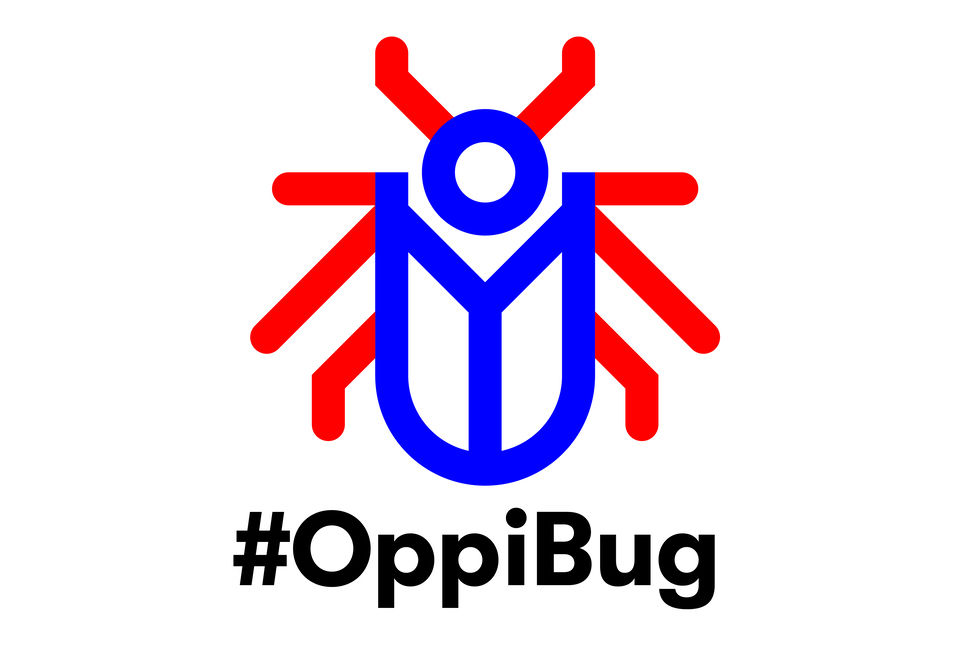
MADE BY is the Institute’s series of interviews that allows artists, designers, thinkers and doers to unfold their creative process in their own words.
Matteo Menapace and Metod Blejec developed a Twitter-based OppiBug game for Oppi Festival 2014 in Helsinki. Matteo (@baddeo) designs user experiences, develops Web products, and teaches people how to do all that. Metod (@metodb) works multidisciplinary across experimental art, design and education. He explores strategies and formats to engage people in exchanging dialogue. Over 300 people played OppiBug during Oppi Festival. While playing, participants helped capture what they made, saw, heard, learned and talked about during the festival, effectively creating a participatory online archive of the event.
We met Antti Halonen at Mozilla Festival 2013, where we were running MozBug – an experimental scavenger hunt, which aimed to “bug” every session of the festival with players actively documenting the event. Intrigued by the idea of using game mechanics (to engage event participants in a collective documentation effort), Antti offered us a new playground at the Oppi Festival, and so the next generation of the EventBug family was born: OppiBug.
We share an active interest in formats that foster participation and collaboration. OppiBug evolved as an amalgamation of ideas, challenges and observations from past workshops we produced and games we organised, but wouldn’t have been possible without the unconditional support of the Finnish Institute in London.
OppiBug offered people a simple and playful structure to actively engage with the Oppi Festival and as a result produce an extensive archive. It harnessed the collective intelligence and imagination of festival participants to achieve an ambitious task – helping organisers build a permanent archive repository of their event, which is often perceived as dry and time-consuming work. It’s a win-win format: people like to play the game via social media, event organisers get the documentation and the buzz during the event (the #OppiBug hashtag was trending both in the UK and in Finland during the two days of the Oppi Festival), while it all ends in a collective archive.
The planning process started with an open conversation with Antti Halonen addressing the specific needs of the Oppi Festival and its audience. We produced an OppiBug identity (in a “chameleon” fashion) based on the official Oppi Festival identity designed by Vilja Achté – the EventBug family brand identity adopts elements of its host’s identity to work with it in symbiosis.
Before Oppi Festival, we set up the Twitter account @OppiBug, which would act as the “game master”, and coordinated the use of a single Twitter #hashtag to focus all social media contributions. We developed a Twitter-bot that automatically archives all tweets containing the chosen #oppibug hashtag, and a leaderboard page for players to see game score updates in real-time. We then flew to Helsinki, where we acted as “human bugs” during the festival, encouraging people to play the game and explaining its collective mission on the field.
We produced three interpretations of the archive after Oppi Festival: a searchable timeline, an interactive data visualisation of connections between #hashtags, and a collage of the archived pictures. The MozBug game proved to be too demanding for participants who were busy with a myriad of festival activities and with little time or energy left to dedicate to a scavenger hunt. For OppiBug, we simplified the format down to only one rule: you earn one point for each tweet hashtagged with #oppibug. This made the game more accessible and easier to understand and play.
Two other factors contributed to the overwhelming response OppiBug received: the adoption of #oppibug as the official Oppi Festival’s hashtag, which made sure everyone was taking part in the same online conversation, and the transparent request OppiBug made to its participant: we focused our communication on a collective mission, rather than on an individual prize. Players were therefore collaborating, rather than competing against each other. People at the Oppi Festival enjoyed playing a game with a shared purpose. Oliver Quinlan, author of The Thinking Teacher and runner-up in the OppiBug leaderboard, told us he particularly enjoyed the “human touch” of having two people (ourselves) roaming around the festival and nudging players. The event organisers were satisfied, but OppiBug offered value also to people who couldn’t be physically present in Helsinki. In the words of Beth Kelly, “[OppiBug] genuinely felt like I was participating in the festival, even tho I was in the UK! ”
After the Oppi Festival we started expanding on the EventBug format and are working on a business model to offer an event crowd-archiving service in the future. And lastly, OppiBug has already been invited to “bug” Oppi Festival in 2015 and is inviting you to “bug” with us.
